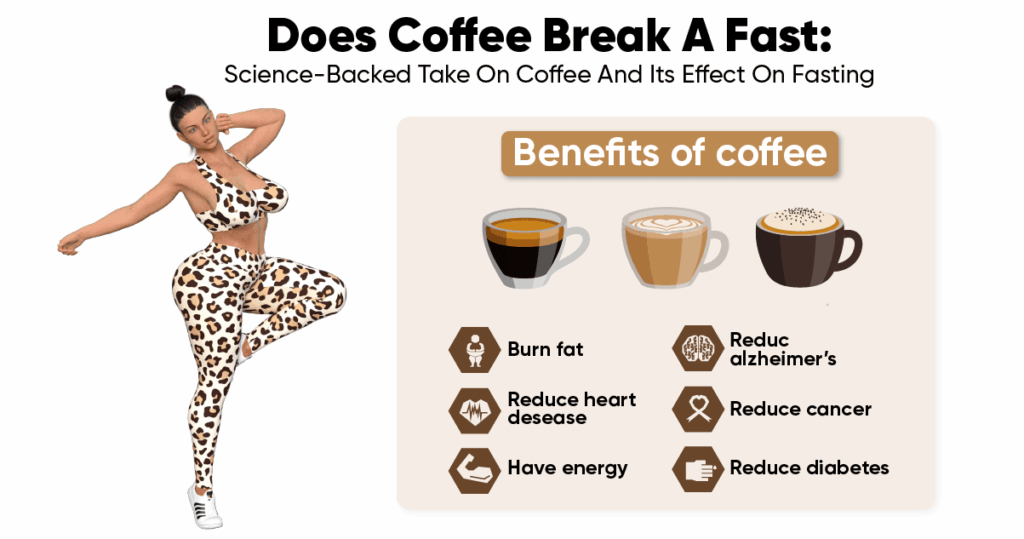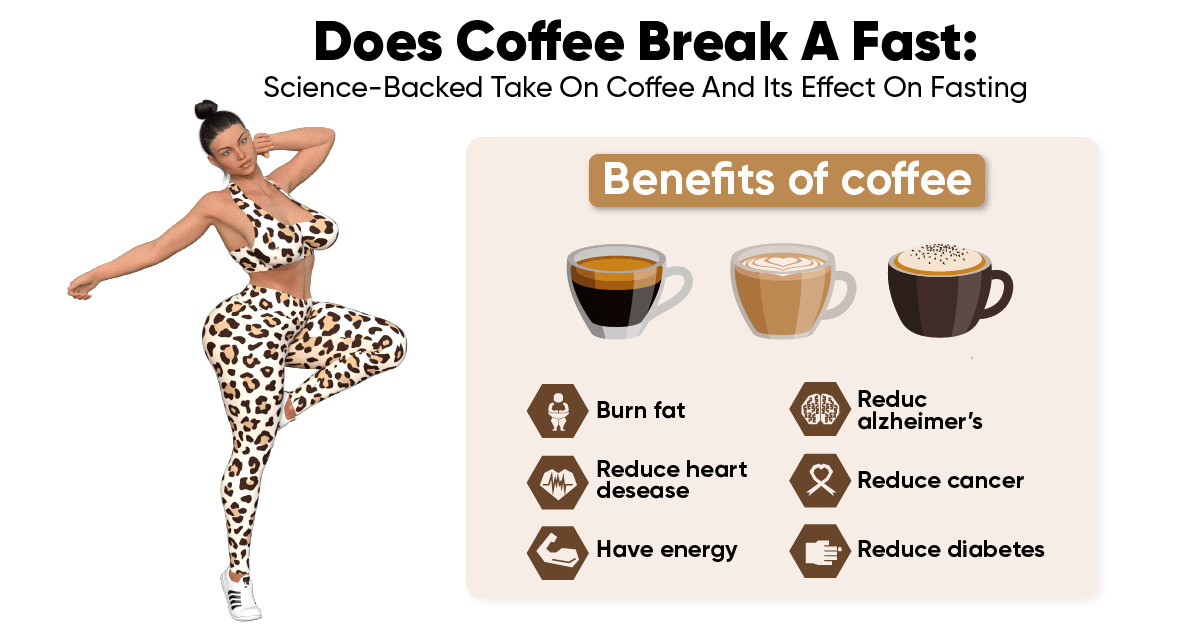
Does Coffee with Cream Break a Fast? Decoding the Dietary Dilemma
The world of intermittent fasting (IF) has exploded in popularity, with proponents touting its potential benefits for weight loss, improved metabolic health, and enhanced cognitive function. However, navigating the dietary restrictions of IF can feel like traversing a minefield. One of the most common questions revolves around the innocuous morning ritual: Does coffee with cream break a fast? The answer, as with many things in nutrition, isn’t a simple yes or no. It’s nuanced, complex, and hinges on a deeper understanding of how fasting works.
This article will delve into the science behind fasting, the impact of coffee and cream on your body, and ultimately, provide a clear, evidence-based answer to the question: does coffee with cream break a fast? We’ll explore the different types of fasting, the role of insulin, and the caloric content of various cream options to help you make informed decisions about your fasting regimen. We will also discuss the impact of coffee with cream on various aspects of health, from blood sugar control to autophagy, and provide practical tips for incorporating coffee into your fasting routine.
Understanding Intermittent Fasting and Its Principles
Intermittent fasting isn’t a diet in the traditional sense; it’s an eating pattern that cycles between periods of eating and voluntary fasting on a regular schedule. There are several popular methods, including the 16/8 method (fasting for 16 hours and eating within an 8-hour window), the 5:2 diet (eating normally for five days a week and restricting calories to 500-600 on two non-consecutive days), and alternate-day fasting. The core principle of intermittent fasting is to restrict calorie intake for a defined period, which triggers specific metabolic changes in the body.
During a fast, the body depletes its glycogen stores (stored glucose) and begins to utilize stored fat for energy. This process, known as ketogenesis, leads to the production of ketones, which the body uses as an alternative fuel source. Intermittent fasting has been shown to have several potential benefits, including:
- Weight Loss: By restricting calorie intake, intermittent fasting can create a calorie deficit, leading to weight loss.
- Improved Insulin Sensitivity: Fasting can improve the body’s sensitivity to insulin, a hormone that regulates blood sugar levels.
- Enhanced Cellular Repair (Autophagy): Fasting can stimulate autophagy, a cellular process that removes damaged cells and promotes cellular renewal.
- Potential for Longevity: Some studies suggest that intermittent fasting may have anti-aging effects.
The success of intermittent fasting hinges on maintaining a fasted state, where the body is primarily utilizing fat for energy. This is where the question of coffee with cream becomes crucial. Does coffee with cream break a fast by disrupting this metabolic process?
The Impact of Coffee on Fasting
Black coffee is generally considered safe during a fast. It contains virtually no calories and doesn’t typically trigger a significant insulin response. In fact, coffee can even enhance some of the benefits of fasting. Studies have shown that coffee can:
- Boost Metabolism: Caffeine, a stimulant in coffee, can increase the metabolic rate, helping the body burn more calories.
- Suppress Appetite: Coffee can help reduce feelings of hunger, making it easier to adhere to fasting protocols.
- Enhance Cognitive Function: Caffeine can improve alertness, focus, and cognitive performance.
However, the situation becomes more complex when you add cream to your coffee. The primary concern is the caloric content and the potential impact on insulin levels.
The Cream Conundrum: Calories, Insulin, and the Fasting State
The crux of the matter in determining whether coffee with cream breaks a fast lies in the caloric content of the cream and its effect on insulin. Even small amounts of calories can potentially disrupt the fasted state, depending on the individual and the specific fasting protocol. When you consume calories, your body releases insulin to help process and store the energy. This insulin response can effectively “break” the fast by signaling to the body that it’s no longer in a fasted state.
Different types of cream vary significantly in their caloric content and macronutrient profile:
- Heavy Cream: Rich in fat and calories (approximately 50 calories and 5 grams of fat per tablespoon).
- Half-and-Half: A blend of milk and cream, with a moderate calorie count (approximately 20 calories and 1.5 grams of fat per tablespoon).
- Milk: Contains carbohydrates and protein, along with calories (approximately 10-15 calories per tablespoon, depending on the type of milk).
- Creamer (Non-Dairy): Often contains added sugars and other ingredients, and the caloric content can vary widely (can range from 10 to 50 calories per tablespoon).
The higher the caloric content, the more likely it is that the cream will trigger an insulin response and potentially break the fast. Even if the calories are relatively low, the presence of carbohydrates (as found in milk and some non-dairy creamers) can further contribute to an insulin response. The amount of cream consumed also plays a crucial role. A small splash may have a negligible effect, while a larger serving could be more impactful.
Does Coffee with Cream Break a Fast? The Verdict
So, does coffee with cream break a fast? The answer is, it depends. If you are strictly adhering to a fasting protocol, especially one focused on autophagy or maximizing fat burning, then adding any amount of cream is very likely to break your fast. Even a small amount of cream, due to its caloric content, will trigger an insulin response, potentially shifting your body out of the fasted state. For many, the small amount of calories in half-and-half or a splash of heavy cream may not significantly detract from the benefits of fasting, but the impact will vary depending on the individual and the specific goals of their fasting regimen. If your primary goal is weight loss, and you are incorporating coffee with cream, you may still see results, but the process might be slower.
Consider these factors when deciding whether to include cream in your coffee during a fast:
- Your Fasting Goals: Are you primarily focused on weight loss, improving insulin sensitivity, or maximizing autophagy?
- The Type of Cream: Choose the lowest-calorie option, such as a small amount of heavy cream, if you choose to have cream at all.
- The Amount of Cream: Use the smallest amount possible to minimize the caloric impact.
- Your Individual Tolerance: Monitor your body’s response. Do you notice any changes in energy levels or hunger?
Ultimately, the decision of whether to have coffee with cream during a fast is a personal one. Weigh the potential benefits against the potential drawbacks and make an informed choice that aligns with your individual goals and preferences. It’s also important to note that while *coffee* with cream might break a fast, that doesn’t mean it negates all the benefits you’ve gained! Intermittent fasting is a lifestyle, and small deviations are often acceptable, and the impact of *coffee* with cream is often less than most people think.
Alternative Options for Your Fasting Coffee
If you want to enjoy coffee during your fast without the potential for disrupting the fasted state, consider these alternatives:
- Black Coffee: The purest form, with no calories and no impact on insulin.
- Coffee with MCT Oil: Medium-chain triglycerides (MCTs) can be added to coffee for an energy boost without significantly impacting insulin levels. Some people find that this makes them feel full longer, which can be helpful during a fast.
- Coffee with a Small Amount of Butter (Bulletproof Coffee): Popularized by the Bulletproof Diet, this involves adding butter and MCT oil to coffee. While it provides calories, it may not trigger a significant insulin response. However, it’s best to proceed with caution and monitor your individual response.
- Sugar-Free Flavored Coffee: Consider using sugar-free flavorings, such as vanilla extract or cinnamon, to enhance the taste of your coffee.
Maximizing Your Fasting Experience
Regardless of whether you choose to include cream in your coffee, there are several strategies to optimize your intermittent fasting experience:
- Stay Hydrated: Drink plenty of water throughout the day, especially during your fasting period.
- Focus on Nutrient-Dense Foods: When you are eating, prioritize whole, unprocessed foods that are rich in nutrients.
- Listen to Your Body: Pay attention to how your body responds to fasting and adjust your approach as needed.
- Consult with a Healthcare Professional: Before starting any new dietary regimen, it’s always a good idea to consult with a doctor or registered dietitian, especially if you have any underlying health conditions.
- Prioritize Sleep: Adequate sleep is crucial for overall health and can enhance the benefits of intermittent fasting.
- Manage Stress: Chronic stress can interfere with your metabolic health and can affect your fasting experience.
By understanding the science behind fasting and making informed choices about your dietary habits, you can effectively incorporate intermittent fasting into your lifestyle and potentially reap its many benefits. Remember that *coffee* with cream doesn’t have to be a dealbreaker; it’s about making choices that align with your individual goals and listening to your body.
Conclusion: Making Informed Choices for Your Health
The question of whether *coffee* with cream breaks a fast underscores the need for a nuanced understanding of intermittent fasting and its underlying principles. While black *coffee* is generally considered safe, the addition of cream introduces calories and the potential for an insulin response. The specific impact depends on the type and amount of cream used, as well as your individual fasting goals. If your goal is to maximize the benefits of fasting, especially autophagy, it’s generally best to avoid cream. However, if your goal is simply weight loss or overall health and wellness, a small amount of cream may not significantly hinder your progress. Ultimately, the decision is a personal one, and it’s essential to weigh the potential benefits and drawbacks and make informed choices that align with your individual needs and preferences. Remember to consult with a healthcare professional before making any significant dietary changes.
By understanding the science, making informed decisions, and listening to your body, you can successfully navigate the world of intermittent fasting and potentially unlock its many health benefits. The key is to adapt the fasting protocol to your individual lifestyle and goals, ensuring that it is sustainable and enjoyable.
[See also: How to Start Intermittent Fasting for Beginners], [See also: The Best Foods to Eat During Your Eating Window], [See also: Common Mistakes to Avoid While Intermittent Fasting]


